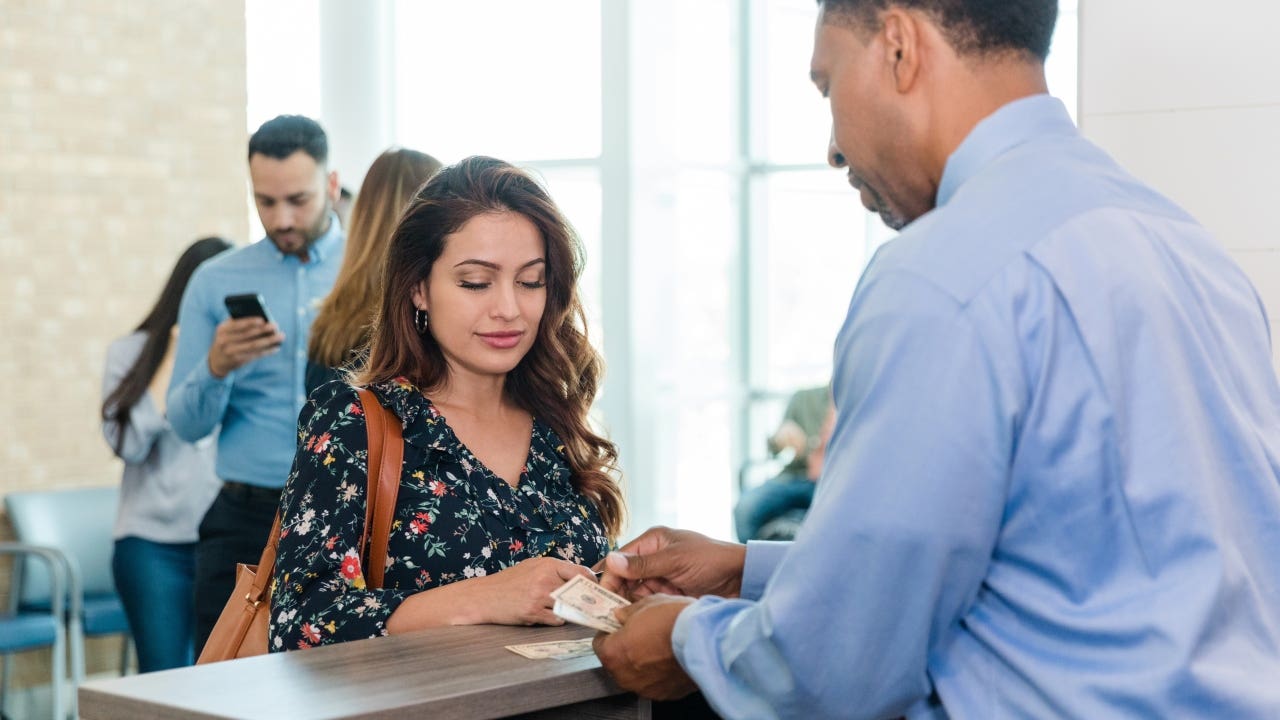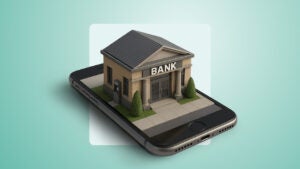Are banks the best place to cash in your coins?

Key takeaways
- Most banks offer free coin exchange services to account holders, though you may need to roll coins yourself.
- Self-service coin-counting machines are more commonly found at local banks and credit unions than at national banks.
- Coinstar offers convenient coin exchange but charges steep fees unless you opt for a store gift card.
There’s the old saying that “every penny counts,” but a 2024 estimate from waste management company Reworld projects that Americans might be throwing away up to $68 million in coins every year.
Instead of letting your loose change disappear, you could convert it to cash for savings or purchases. If you’re wondering where to exchange coins for money, your bank typically offers the most cost-effective solution.
Can you cash in coins at a bank?
Most national banks, local banks and credit unions will accept coins in exchange for cash. However, policies and procedures vary by institution and location.
For example, national banks like Chase and Capital One exchange pre-rolled coins for cash for account holders. Some credit unions, such as Mission Fed Credit Union, provide coin-counting machines at most branches.
However, service fees may apply, particularly for non-account holders. The service may come with a small charge, so it’s important to call ahead to know what to expect.
If you’re managing your money at an online-only bank, you’ll likely need to find another place to use your coins. Ally, for example, does not even accept cash deposits – which means you’re also out of luck with your coins.
Benefits of exchanging coins for cash
Unless you’re regularly using quarters for laundry, paying at a parking meter or buying a snack in an old-school vending machine, there isn’t much need for coins in your everyday life. Finding a place to convert them into paper money comes with these perks:
- You’ll save some space: You can’t keep three pounds of nickels in your wallet, which means you probably have a large plastic bag or mug that is overflowing somewhere in your home. Turn it into a $20 bill instead to eliminate your storage challenges.
- You’ll be able to deposit it and earn interest: Instead of spending that $20 bill, you can also just put it in a savings account and let it grow.
- You’ll have an easier way to spend it: And if you do spend it, whoever receives it – whether it’s a merchant, a babysitter or a friend you’re splitting dinner with – will like you more. Why? Because you won’t force them to deal with that mountain of nickels and dimes, either.
How banks process coin deposits
Banks handle coin exchanges through two primary methods:
Coin-counting machines
Some institutions, particularly local banks and credit unions, maintain automated counting machines in their branches. You simply dump your change into the machine to be automatically counted and receive the appropriate amount of cash in exchange. However, these machines can be expensive to maintain, so they’re not always readily available.
Rolled coins
More often, you’ll be able to take advantage of manual counting and sorting by bank tellers, usually with pre-rolled coins. Banks often give out free coin wrappers for customers to use. You’ll sort your coins into pennies, nickels, dimes and quarters and then wrap them yourself.
After the bank teller counts your coins, they will give you cash in exchange or send a deposit to your savings or checking account. Banks typically don’t charge for the coin exchange service if you’re an account holder.
It’s a good idea to call your bank to check how they handle coin money exchanges so you’ll know if you need to wrap them.
Pros and cons of cashing in coins at a bank
There are benefits and drawbacks of using a bank to cash in your coins. What you get out of it depends on the bank or the credit union you’re using and what process they have available.
Pros
- No fees for account holders: Banks usually offer the service of exchanging coins for cash without a fee, depending on the number of coins you’re bringing in. As long as you have a moderate amount and an account with the bank, you may be able to avoid a service charge.
- Direct deposit: If you prefer to deposit your coins into your bank account or savings account instead of receiving cash, you can usually do so with your bank. That way, your spare change can go immediately toward a goal.
- Familiarity: It’s easy to put off tasks like swapping change for cash, so heading to a bank you know can make it easier.
Cons
- Lack of coin-counting machines: Many national banks have removed or stopped offering automatic coin-counting machines to customers. Local banks or credit unions are more likely to have them, but not all branches will.
- Possible fees for non-customers: If you go into a bank where you don’t hold an account, you may have to pay a fee for the service. The bank may also charge you to make a large coin deposit.
- Time-consuming: If you have to wrap the coins yourself, it can take time out of your day you’d rather spend doing something else.
Alternative ways to exchange coins for cash
Banks are not the only option for getting rid of extra coins — a few other businesses exchange coins for cash. However, these alternatives may cost you more, eating into the amount you get back from exchanging your change.
Self-service kiosks
Coinstar operates approximately 20,000 self-service kiosks worldwide. These machines provide immediate counting and exchange services but charge significant fees — up to 12.9 percent plus $0.99 per transaction.
The machine counts your change and offers you cash, gift cards or the option to add to your Amazon balance or donate to charity.
Coinstar may waive the fee if you exchange your coins for an eGift card for a specific store or brand. However, not all gift card options are available at every kiosk, so your options depend on which location you visit.
Local coin dealers or coin shops
If you have valuable or rare coins, specialized dealers may offer better rates. The American Numismatic Association suggests that coin shows can bring in a higher price but may be more of a hassle if you need to travel to get to them.
When to choose bank exchange services
Banks are an affordable option for account holders since they often waive the fees. You can also usually deposit directly to your savings or checking accounts or exchange for cash on the spot. It’s also convenient if you’re already banking with the institution.
A bank deposit may be the easiest and cheapest option if you have a smaller coin collection. Banks may restrict the number of coins you can bring in at a time, so consider alternatives if you have a large coin stash to exchange.
The bottom line
Coins may not be a part of your everyday spending routine, which means that they’re likely adding up in a forgotten drawer in your home. Don’t just let them sit there, though. Whether you need some extra cash for your budget this month or you’re trying to identify any opportunity for more savings, all that change can make an actual change in your personal finances.
So, call your bank and ask about any specific policy related to converting your coins into cash. Most banks don’t list the full details online, but money is money: They’ll more than likely accept it.
Frequently asked questions
Why we ask for feedback Your feedback helps us improve our content and services. It takes less than a minute to complete.
Your responses are anonymous and will only be used for improving our website.
You may also like


Can you deposit cash at an ATM?




